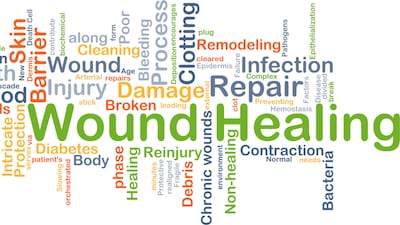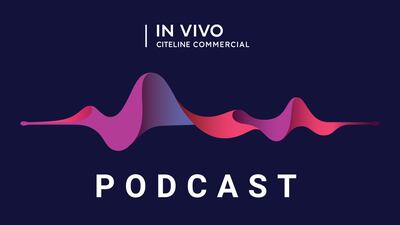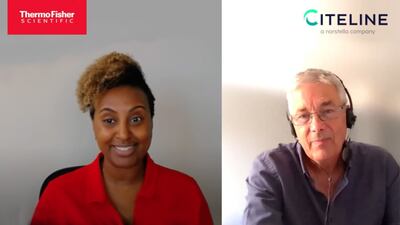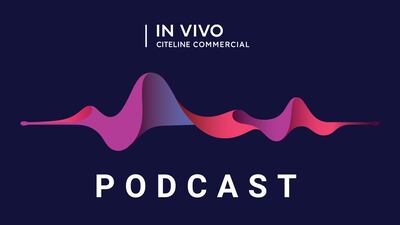Innovation
To make your document look professionally produced, Word provides header, footer, cover page, and text box designs that complement each other. For example, you can add a matching cover page, header, and sidebar. Click Insert and then choose the elements you want from the different galleries.
To make your document look professionally produced, Word provides header, footer, cover page, and text box designs that complement each other. For example, you can add a matching cover page, header, and sidebar. Click Insert and then choose the elements you want from the different galleries.
As the planet heats up and sea levels rise, the need to reduce carbon emissions is becoming ever more urgent. The life sciences industry is just one of many that are looking to cut the carbon it produces.
AI-powered bandages monitor wounds, deliver therapies, and detect complications, offering faster healing and personalized care for improved patient outcomes.
Tumor infiltrating lymphocyte therapies show promise for solid tumors, with a first FDA approval, but face manufacturing and access challenges as development continues.
Nonprofits are finding new ways to address market gaps and develop treatments for rare diseases with little commercial attraction.
BMS has launched a new cancer drug access program for low-to-middle income countries, focusing on addressing health inequities and widening accessibility.
Richard Lowenthal, co-founder, and CEO of ARS Pharma, highlights the crucial unmet need for needle-free injections. Challenging issues posed by current epinephrine injectors, In Vivo questions the current and future progression of Neffy.
Patrick Alexandre, Crossject CEO, discusses crucial developments happening for Zeneo, a needle-free injector, functioning intramuscularly to administer medication in a tenth of a second
Christopher Anzalone is spearheading Arrowhead Pharmaceuticals' transformation from a development-focused to a commercial-stage biotech. The CEO touts an “almost plug and play” platform, a derisked development strategy and a busy pipeline with vast potential.
Christopher Anzalone is spearheading Arrowhead Pharmaceuticals' transformation from a development-focused to a commercial-stage biotech. The CEO touts an “almost plug and play” platform, a derisked development strategy and a busy pipeline with vast potential.
Mary Jane Hinrichs, Ipsen’s head of early development, talks to In Vivo about getting ahead of the competition by securing deals for candidates before they enter Phase I trials.
John Lepore, CEO of ProFound Therapeutics and CEO-partner at Flagship Pioneering, discusses the vast possibilities for the human atlas, the benefits of strategic partnering and knowing when to walk away from a project.
The overall R&D productivity of the 30 largest public biopharma companies has increased despite a challenging global environment for investment and growth. Will hype cycles impact this picture in coming years?
Meron Mathias is vice president of CSR and sustainability at Thermo Fisher, whose specialty diagnostics division makes it the fifth leading player by revenues in the global IVD industry. In this podcast, she reflects on Thermo Fisher’s early commitment to ESG and sustainability reporting, its Scope 1, 2 and 3 targets and how regulation is moving industry towards a mandatory disclosure landscape.
China has seen a “milestone year for the overseas launch of domestically produced innovative drugs.”
Meron Mathias is vice president of CSR and sustainability at Thermo Fisher, whose specialty diagnostics division makes it the fifth leading player by revenues in the global IVD industry. In this podcast, she reflects on Thermo Fisher’s early commitment to ESG and sustainability reporting, its Scope 1, 2 and 3 targets and how regulation is moving industry towards a mandatory disclosure landscape.
Keith Murphy, co-founder of Organovo, discusses the growing potential of bioprinting and how the company is using its technologies to study and develop treatments for inflammatory bowel disease (IBD).
King’s College London has released a freely available ‘Human Gut Microbiome Atlas’ to help researchers better understand how microorganisms in the gut impact disease.
It has been quite a year for German biotech Tubulis, and CEO Dominik Schumacher tells In Vivo that the group has the potential to be “a really meaningful, sizable leader” in the antibody-drug conjugate space.





![[Test]With 75 Pipeline Candidates, TIL Therapies Gain Momentum in Solid Tumor Space](https://web.insights.norstella-labs.com/resizer/v2/G3M6E2FVDNOJPCEXELJNOIKH64.jpg?auth=b5d5c6477bcbd6c122699f47191cbafe560695783f500a6e7b10c4d270965bdc&width=400)







